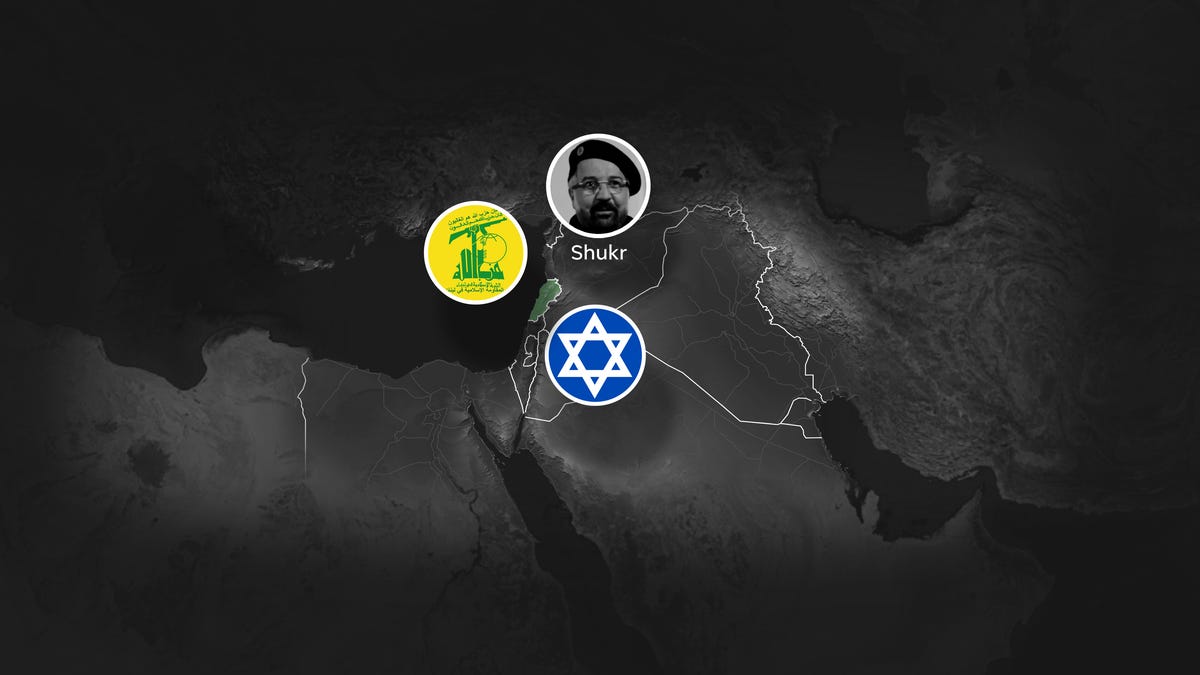What is Hezbollah, the militant group that is increasing the risk of wider war with Israel?
The killings of leaders from the militant groups Hamas and Hezbollah are raising concerns that the conflict in Gaza may escalate into a larger war across the Middle East.
Israel has been engaged in conflict with Hamas in Gaza since Hamas launched an offensive in southern Israel on October 7, resulting in the deaths of 1,200 individuals and the capture of about 250 hostages.
After Israel retaliated, Hezbollah, which has strong ties with Hamas, began launching attacks against Israel. Their involvement is particularly worrying since Hezbollah is seen as more powerful than Hamas, potentially leading to a two-front war for Israel.
On July 31, Hamas leader Ismail Haniyeh was reportedly killed in an explosion in Beirut, although Israel has not confirmed or denied its involvement.
On July 30, the Israeli Defense Forces targeted Fuad Shukr, a senior commander of Hezbollah, in airstrikes in Beirut. He was believed to have orchestrated a rocket attack that killed 12 minors and injured 44 others in Israel on July 27.
Where have the attacks occurred?
The rocket attack impacted a Druze village in the Israeli-occupied Golan Heights while children were playing soccer.
This incident is deemed the deadliest assault on Israel since the outset of the Gaza conflict. Hezbollah has denied any role in it.
Hezbollah, an organization supported by Iran and closely allied with Hamas, operates from Lebanon, north of Israel. The group has vowed to continue its assaults on Israel to compel a withdrawal from Gaza.
On November 3, Hezbollah warned of potential escalation in Israel’s conflict with Hamas, though they have refrained from officially declaring war on Israel.
Hezbollah has a notorious reputation for its global attacks, as noted by the Center for International Security and Cooperation at Stanford University. This includes the suicide bombing in October 1983 that resulted in 241 U.S. military deaths, primarily Marines, in a bombing on American military barracks in Beirut.
Where is Hezbollah launching attacks on Israel?
Since the beginning of the Gaza conflict, Hezbollah has been conducting attacks along the Israeli-Lebanese border.
Iran-backed militant groups are lending their support to Hamas in its campaign within Gaza. Among these groups, Hezbollah is recognized as the most formidable member of the Iranian network referred to as the Axis of Resistance, according to Reuters.
What is Hezbollah’s strength?
Both Hamas and Hezbollah receive backing from Iran, yet Hezbollah reportedly possesses around 100,000 rockets, some equipped with precision guidance. While Hezbollah leader Hassan Nasrallah claims the group has 100,000 fighters, external assessments estimate their number to be between 20,000 and 50,000.
Hezbollah is multi-dimensional: religious, militant, and political
Hezbollah, which means “Party of God” in Arabic, is a Shia Islamic organization established in Lebanon in 1982, representing the second-largest branch within the Islamic faith, with Sunni Islam being the largest.
In 1985, Hezbollah published a manifesto outlining its objectives, including the dismantling of Israel and the removal of Western influence from the Middle East. It entered Lebanese politics in 1992.
Currently, Hezbollah is regarded as a “state within a state,” participating in the Lebanese parliament and government while managing its own political, military, and social services, as indicated by The Wilson Center.
Hezbollah’s attacks on Americans
Hezbollah’s assaults on Americans, Israelis, and others have garnered worldwide attention.
On October 23, 1983, during the Lebanese Civil War, suicide bombers targeted military barracks at Beirut International Airport, driving two explosive-laden trucks into buildings housing U.S. and French military personnel who were part of a multinational force in Lebanon.
The attack resulted in the death of 241 Americans and at least 58 French paratroopers. Following this, the U.S. withdrew its forces from Lebanon. Hezbollah has denied any involvement in this incident.
However, there have been several other notable attacks.
April 1983: A suicide bombing on the U.S. Embassy in Beirut, linked to Islamic Jihad, an early name for Hezbollah, resulted in 63 fatalities, with 17 being U.S. citizens.
June 1985: Hezbollah seized TWA Flight 847 in Athens, taking 146 hostages for 17 days and murdering Navy diver Robert Dean Stethem, 23. The hostages were ultimately freed in exchange for 300 Lebanese prisoners held in Israel.

